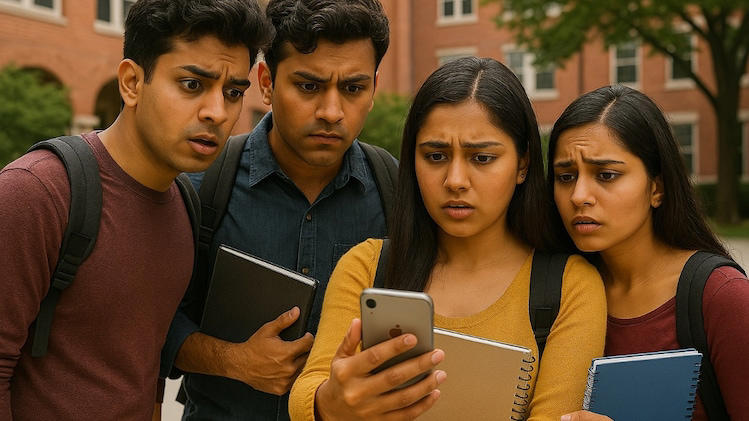118 International Students in Texas Lose Visas After SEVIS Termination Sweep, Raising Legal and Ethical Concerns
In a sweeping and deeply concerning development, at least 118 international students studying in Texas have had their student visas revoked or their immigration status terminated in the SEVIS database, effectively stripping them of their legal standing in the United States. This unprecedented action, first reported by the Texas Tribune, has sent shockwaves through the academic and international student communities, raising critical questions about due process, transparency, and the future of international education in the U.S.
The Student and Exchange Visitor Information System (SEVIS) is a critical component of the U.S. immigration system that monitors international students and exchange visitors. Removal from SEVIS has immediate and severe consequences, including loss of legal status, employment eligibility, and significant impacts on dependents such as spouses and children. Unlike visa revocations, which may prevent re-entry into the U.S. but do not necessarily affect a student’s ability to remain, SEVIS termination cuts off all avenues instantly, leaving students in legal limbo with very few options.
Among the universities hit hardest are the University of North Texas (27 students) and the University of Texas at Arlington (27 students), followed by University of Texas at Dallas (19 students) and Texas A&M University (19 students). Other institutions reporting affected students include the University of Texas Rio Grande Valley (9 students), Texas Woman’s University (4 students), Texas Tech University (3 students), and University of Texas at El Paso (10 students) who had their visas revoked. Both University of Texas at Austin and University of Houston have also confirmed changes to students’ immigration statuses, although they have not released exact numbers.
The abrupt and unexplained changes have drawn significant criticism from immigration experts and legal professionals. Robert Hoffman, a leading immigration attorney, emphasized the lack of due process in these terminations. “Unfortunately, these kinds of terminations short-circuit due process by not allowing the student the opportunity to hear the specifics of their charges or defend themselves,” Hoffman said, highlighting the opaque nature of the removals.
What makes this situation even more troubling is the lack of transparency from university and federal authorities regarding how the students were selected. While no official link has been confirmed, the Department of Homeland Security (DHS) recently announced a controversial policy to begin monitoring the social media activity of international students, specifically screening for what it terms as “antisemitic” content. This policy emerged in the wake of widespread pro-Palestinian demonstrations on campuses such as UNT and UTD, both of which are among the universities most affected by the SEVIS terminations. This has led to growing concerns that the removals may be politically motivated or targeted based on students’ participation in lawful protests.
Students who have had their SEVIS status terminated now face extremely limited paths forward. They must either leave the country or attempt to apply for reinstatement, a process fraught with complexity and low success rates. According to immigration attorney Phillip Rodriguez, the method of using SEVIS termination rather than traditional visa revocation appears to be deliberately chosen to complicate appeals and limit students’ ability to remain enrolled. “We think they’re proactively making it so that students can’t continue studies, or making it extremely difficult to continue their studies here in the United States without some sort of intervention,” said Hoffman, underscoring the gravity of the situation.
This mass termination raises serious questions about the future of international education in the United States, the legal rights of foreign students, and the role of immigration policy in academic spaces. The situation remains fluid, with legal challenges and student appeals expected to emerge in the coming weeks.
For more updates and detailed coverage, visit our YouTube channel THE OLIGO for video news.

